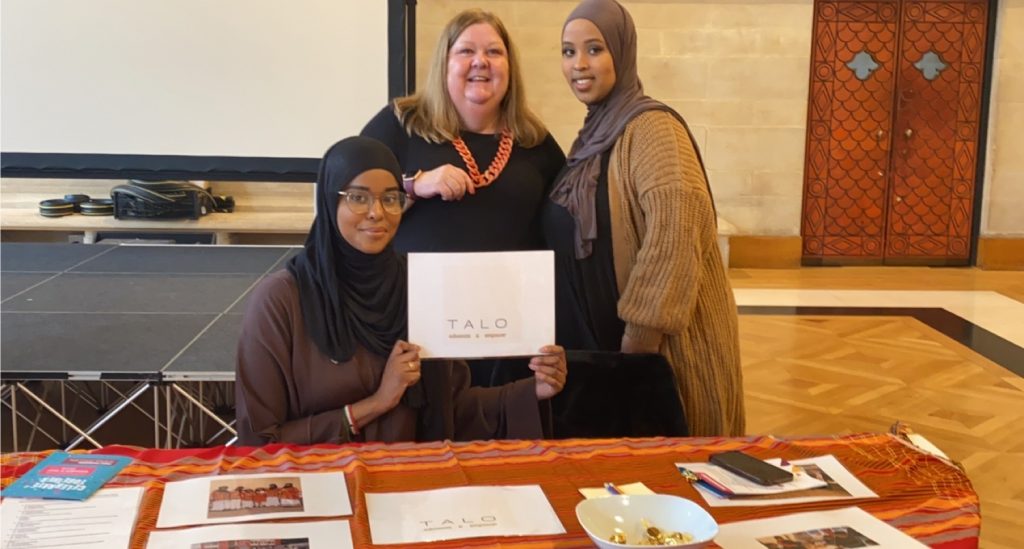
by Raisha Jesmin, Bristol Women’s Voice Volunteer
The Power of Language in Migrant Women’s Journeus
The second session of our Migrant Women Talk series was led by Warda Ibrahim from TALO Community.
TALO is a women-led social organisation launched by Somali women. Through core priorities of ‘positive representation and positive engagement’, TALO encourages marginalised groups to overcome the invisible barriers preventing them from realising their full potential.
In this session, Warda, the Managing Director of TALO, highlighted how language can serve as a bridge for migrant women, helping them navigate new spaces, express their identities, and foster a sense of belonging.
Language as Multifaceted
Warda opened by explaining that language is a multifaceted medium that constitutes a significant part of the lives of migrant women. It is not just a mode of communication – but a skill that all migrants hone to express themselves and become an art form reflecting one’s background, creativity, and identity.
Navigating as a Migrant Woman
Warda proceeded to detail how her upbringing and the challenges she confronted as a migrant woman in Britain shaped her relationship with, and understanding of, language. Having left Somalia early to settle in Britain, Warda and her family experienced various biases in their journey to integrate into the society.
Despite the obstacles, Warda began her career as an English teacher, relying on language to engage with diverse migrant communities and inform her advocacy.
The Power of Language
For migrant communities in Bristol, grasping the local language can be crucial in navigating the city and connecting with others. Recounting her own personal and professional experiences, Warda discussed that language can play a central role in the lives of migrants as they adjust to their new environments. Understanding language can become a tool of empowerment for migrants – opening up economic opportunities and allowing them to battle social injustices.
Bristol’s diversity and multiculturalism means that language learning is fairly accessible for migrants. However, Warda believes that there is still much to improve in terms of addressing the communication needs of various migrant communities, which is what TALO, among other priority areas, focuses on.
Between Integration and Loss of Identity
Migrant communities frequently deal with ‘identity crises’ as they come to juggle between integrating into a new society while trying to retain their roots and culture. This had also been the case for Warda – who briefly talked about the ‘crisis’ she experienced as she learned English and searched for her ‘place’ in British society; it was through her community engagement work that she was able to stay in touch with the Somali culture.
For Warda, rather than resorting to a black and white solution, it was in the gray interstices of contesting identities that migrant communities could find their authentic sense of self.
Warda’s journey and work with TALO demonstrate that language is not just how individuals speak to one another but is a material and symbolic source of resilience, confidence, and solidarity for migrant women.
Find out more about TALO Community: https://www.talocommunity.com/
Find our next Migrant Women Talks here.

